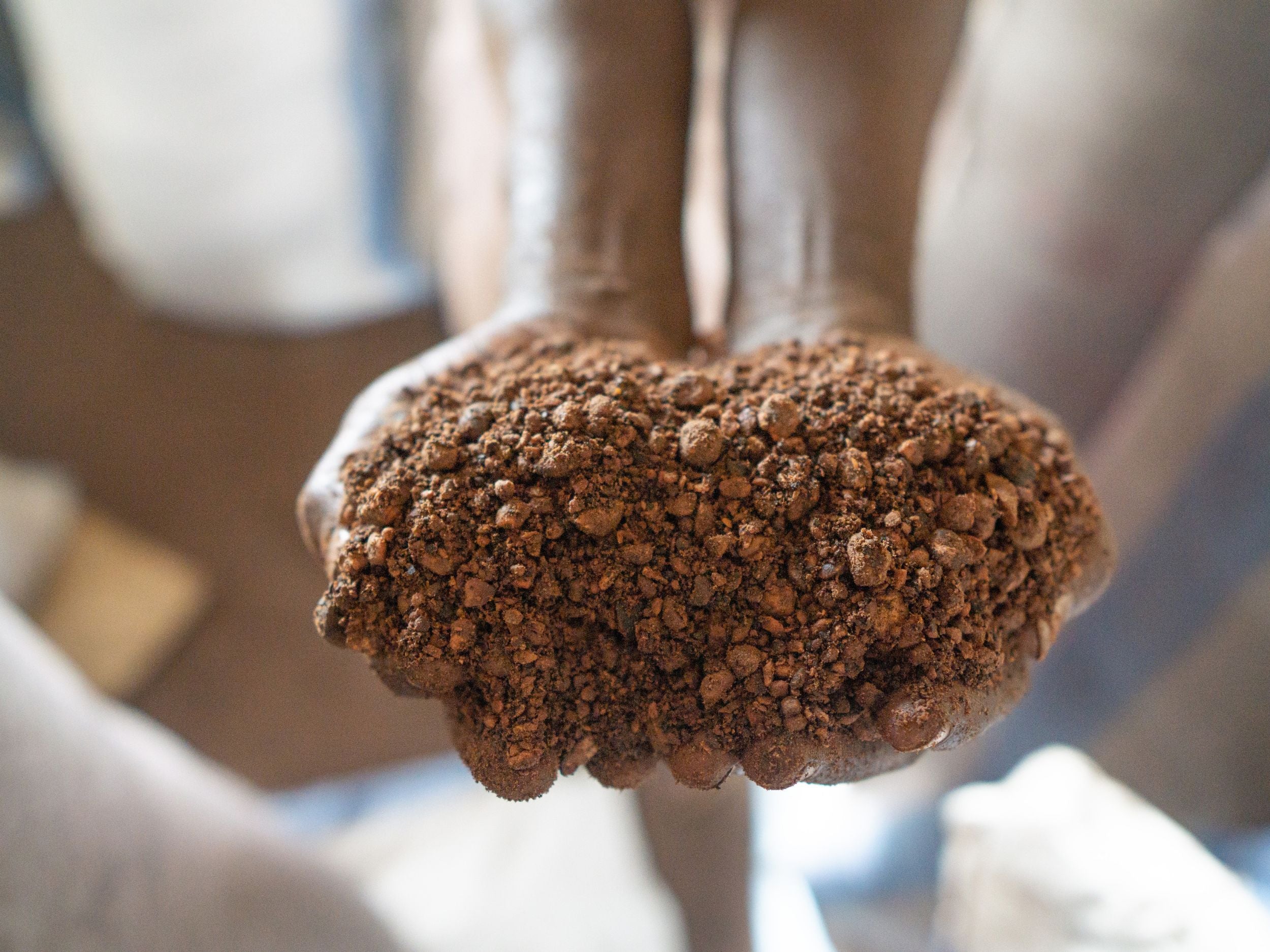Vorteile & Wirkung für Deine Haut

Normale bis trockene Haut
Sheabutter nährt raue Haut intensiv und sorgt für ein geschmeidiges Hautgefühl. Ideal für Hände, Ellbogen, Füsse, Beine oder Lippen – besonders in der kalten Jahreszeit oder bei sehr trockener Haut.

Beanspruchte, gereizte Haut
Sanft zur empfindlichen Haut: Sheabutter kann Hautrötungen mildern, Spannungsgefühle beruhigen und die Hautbarriere stärken – z. B. nach dem Duschen, Rasieren, im Windelbereich bei Babys oder bei Reibung.

Hautregeneration & Zellerneuerung
Reich an Vitaminen und Fettsäuren unterstützt Sheabutter die natürliche Hauterneuerung. Sie eignet sich zur Pflege von Narben, Tattoos, trockenen Stellen oder beanspruchter Hautpartien.

Kopfhaut- und Haarpflege
Sheabutter pflegt trockenes oder sprödes Haar, verleiht Spitzen mehr Geschmeidigkeit und Glanz. Auf der Kopfhaut kann sie beruhigend wirken, z. B. bei Trockenheit, Juckreiz oder Spannungsgefühl.
Note: Bei Hautkrankheiten medizinische Fachpersonen kontaktieren.
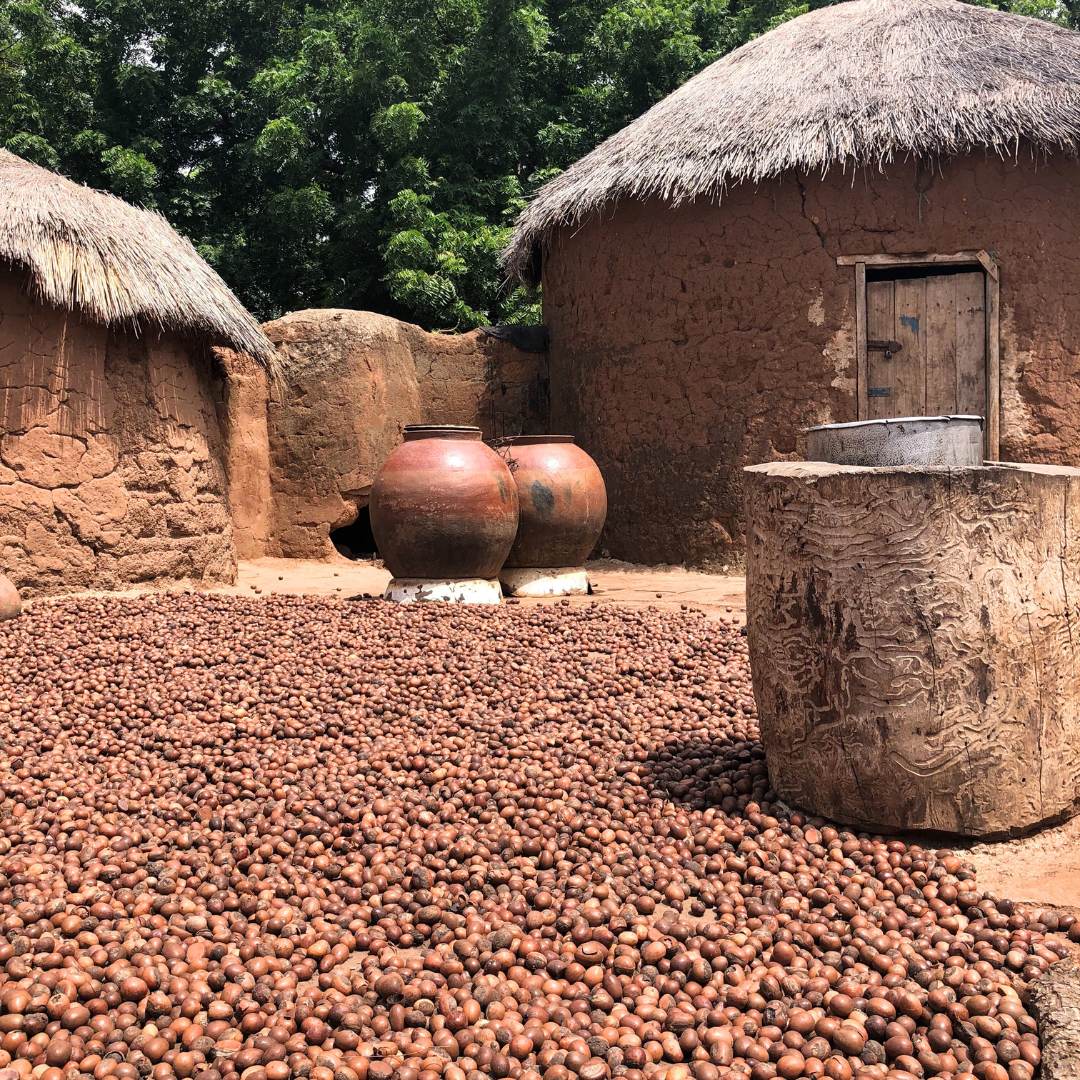
Das kulturelle Erbe der Shea-Herstellung
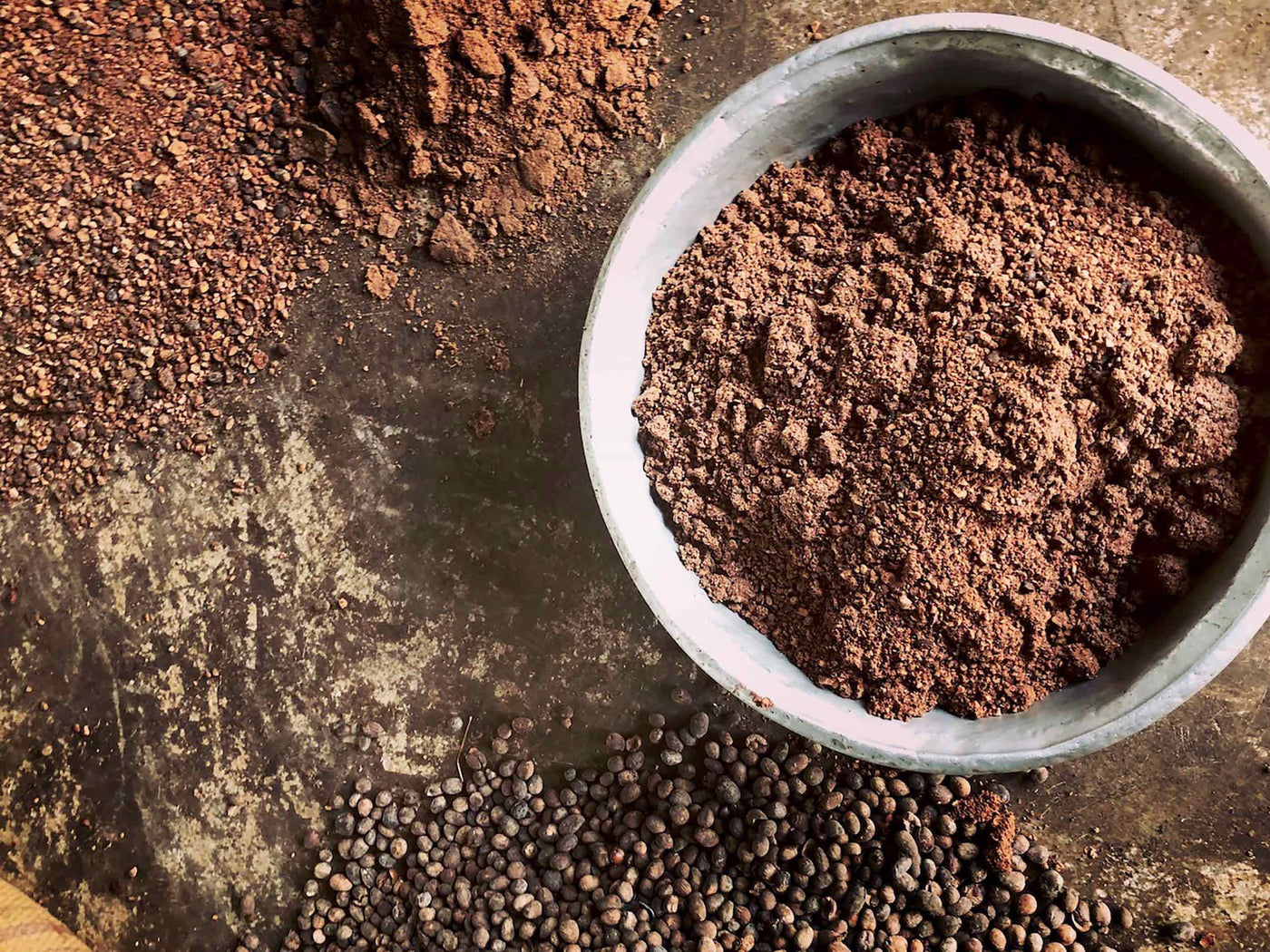
A beneficial raw material
Shea butter, which has been popular for centuries, shows amazing nourishing and protective properties. It makes the skin supple, binds moisture to the epidermis and thus prevents it from drying out. Shea butter is known to penetrate deep into the skin and give it a natural glow.Due to its many positive properties, it is used in many care products such as lotions, creams, lip balms & Co. It is a true all-rounder and is used not only in cosmetics but also in the food industry.

A beneficial raw material
Shea butter, which has been popular for centuries, shows amazing nourishing and protective properties. It makes the skin supple, binds moisture to the epidermis and thus prevents it from drying out. Shea butter is known to penetrate deep into the skin and give it a natural glow.Due to its many positive properties, it is used in many care products such as lotions, creams, lip balms & Co. It is a true all-rounder and is used not only in cosmetics but also in the food industry.
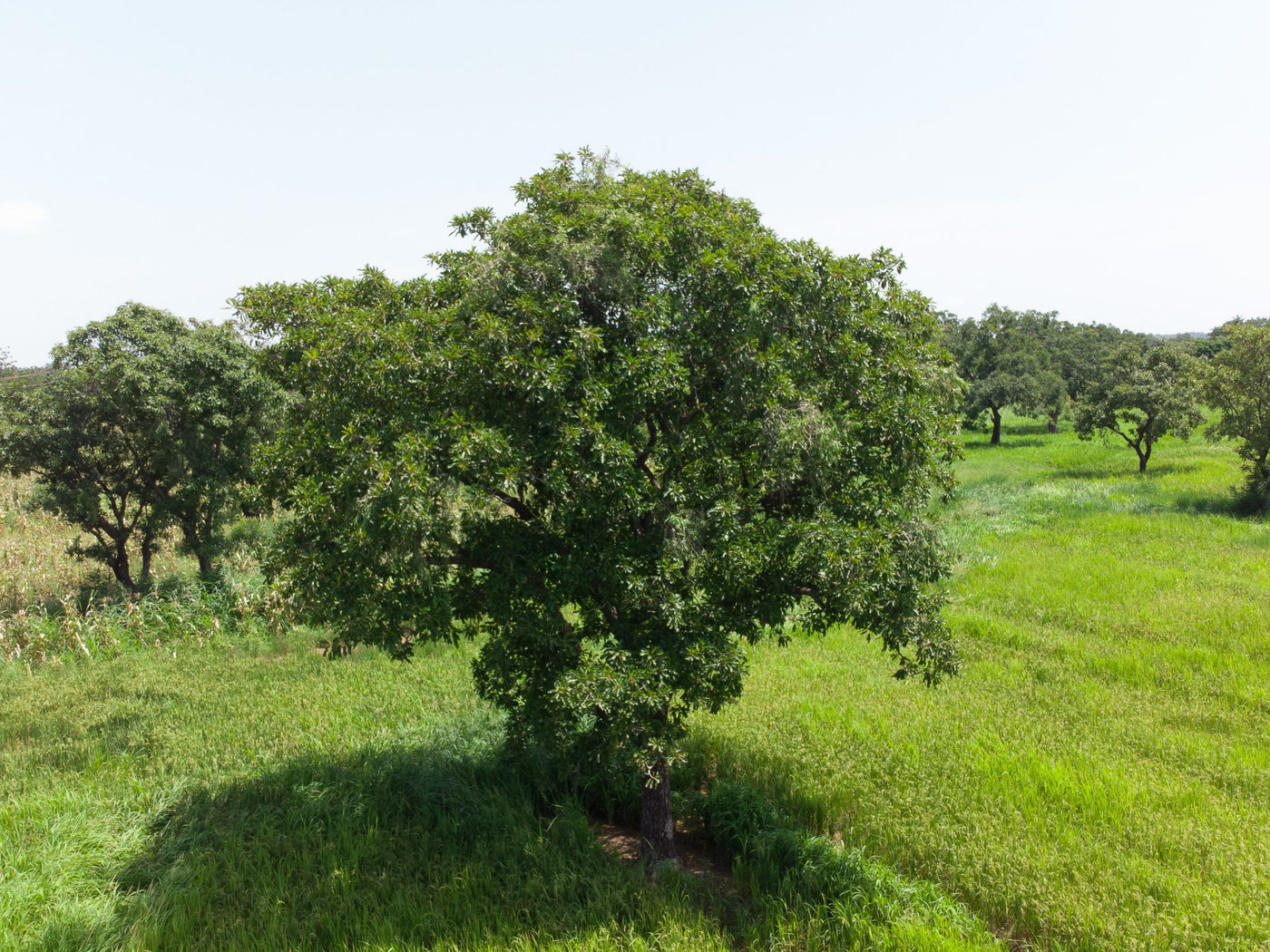
The origin
The natural occurrence of the shea tree is from West Africa to the Upper Nile region, i.e. in about 21 countries of the Sahel zone. The main producing countries of shea butter, also called shea butter or beurre de karité, are Senegal, Mali, Ivory Coast, Ghana, Nigeria, Gambia, Benin and Burkina Faso. The shea tree is a characteristic tree of the savannah woodland. We at SHEA YEA source the shea butter from the north of Ghana.

The origin
The natural occurrence of the shea tree is from West Africa to the Upper Nile region, i.e. in about 21 countries of the Sahel zone. The main producing countries of shea butter, also called shea butter or beurre de karité, are Senegal, Mali, Ivory Coast, Ghana, Nigeria, Gambia, Benin and Burkina Faso. The shea tree is a characteristic tree of the savannah woodland. We at SHEA YEA source the shea butter from the north of Ghana.
"With SHEA YEAH, I am building a bridge between time-honoured plant traditions that are cultivated by women - in Ghana and Switzerland."
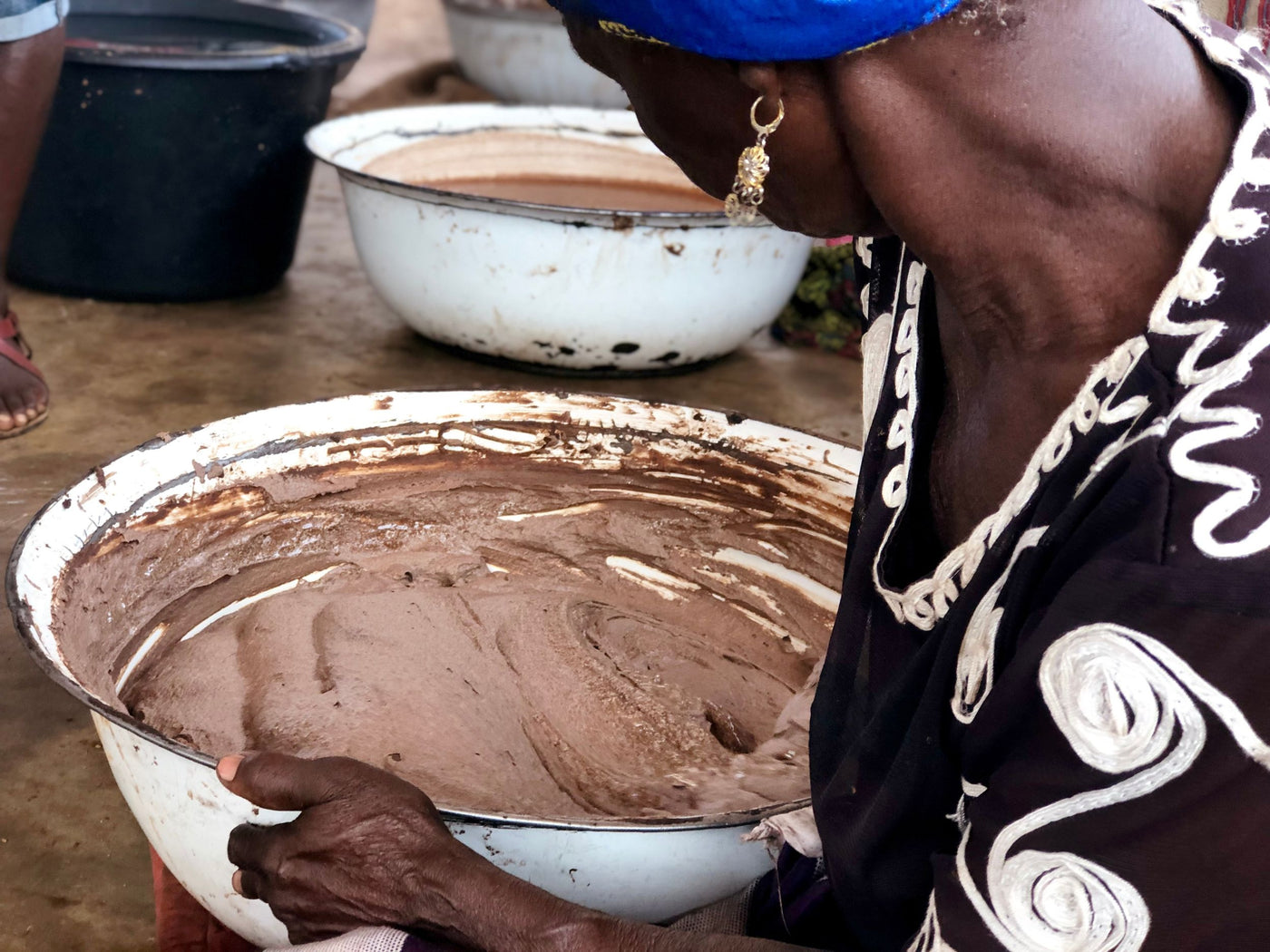
Shea Butter Traditionally Made
Many women in the rural village communities of northern Ghana have mastered a true art form of a craft: that of the traditional processing of shea kernels into unrefined shea butter. This process takes several days and is carefully done by hand. For generations, this knowledge has been passed down among the women and maintained in this way. This is a parallel to what happens with the knowledge of herbs in Switzerland.

Shea Butter Traditionally Made
Many women in the rural village communities of northern Ghana have mastered a true art form of a craft: that of the traditional processing of shea kernels into unrefined shea butter. This process takes several days and is carefully done by hand. For generations, this knowledge has been passed down among the women and maintained in this way. This is a parallel to what happens with the knowledge of herbs in Switzerland.
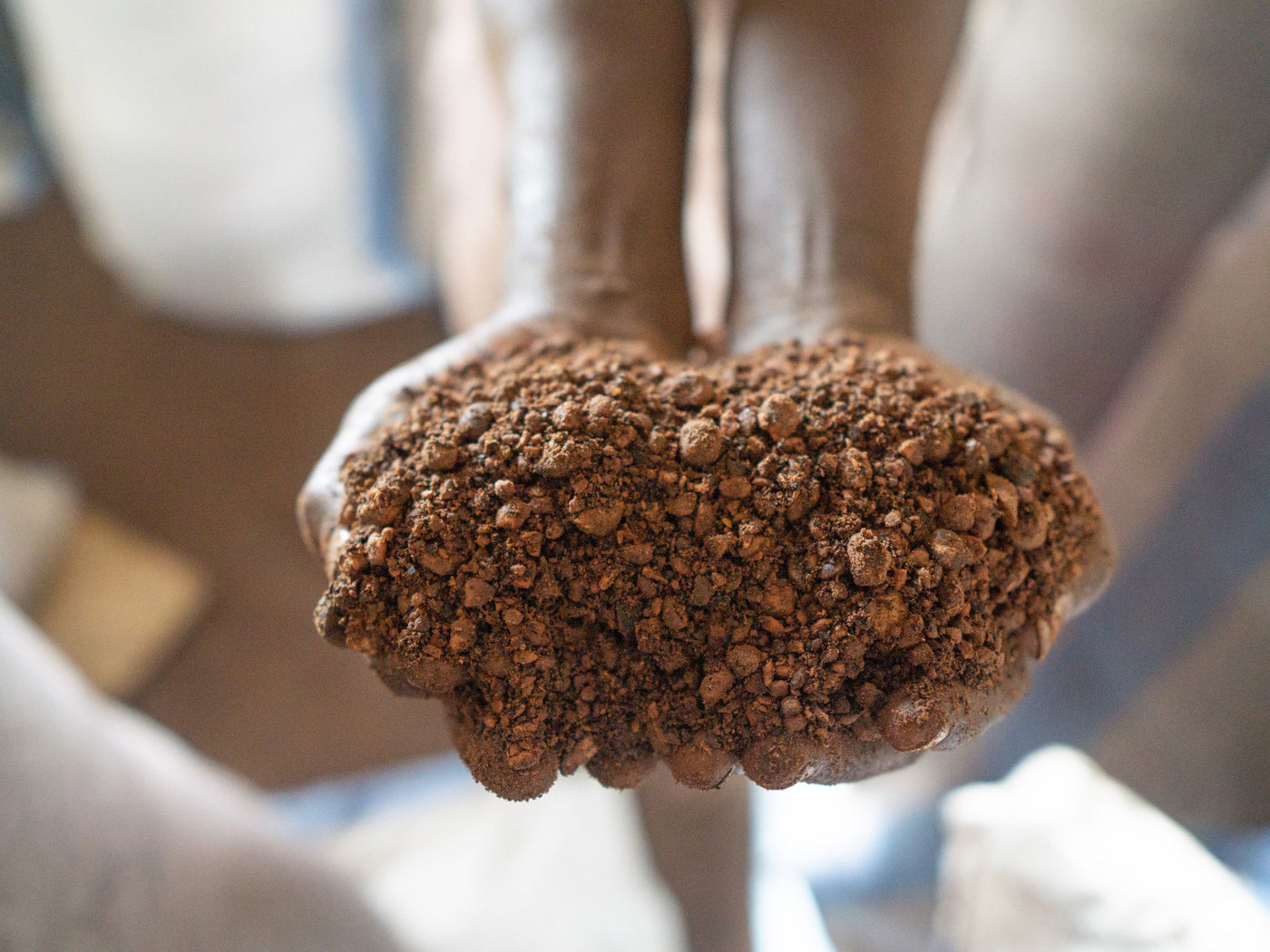
The cooperative
The women who work in the processing centres (we only work with handmade material) are organised in cooperatives. These cooperatives are independent and very democratic with a board of directors elected by the members. The cooperatives pay the workers transparently and equally based on the quantities produced. Our local partner on the ground pays the cooperatives and they pay their members and cover their costs. The organic shea butter is also Fair For Life certified and audited every year. We are also a member of the Global Shea Alliance, based in Accra, Ghana.

The cooperative
The women who work in the processing centres (we only work with handmade material) are organised in cooperatives. These cooperatives are independent and very democratic with a board of directors elected by the members. The cooperatives pay the workers transparently and equally based on the quantities produced. Our local partner on the ground pays the cooperatives and they pay their members and cover their costs. The organic shea butter is also Fair For Life certified and audited every year. We are also a member of the Global Shea Alliance, based in Accra, Ghana.
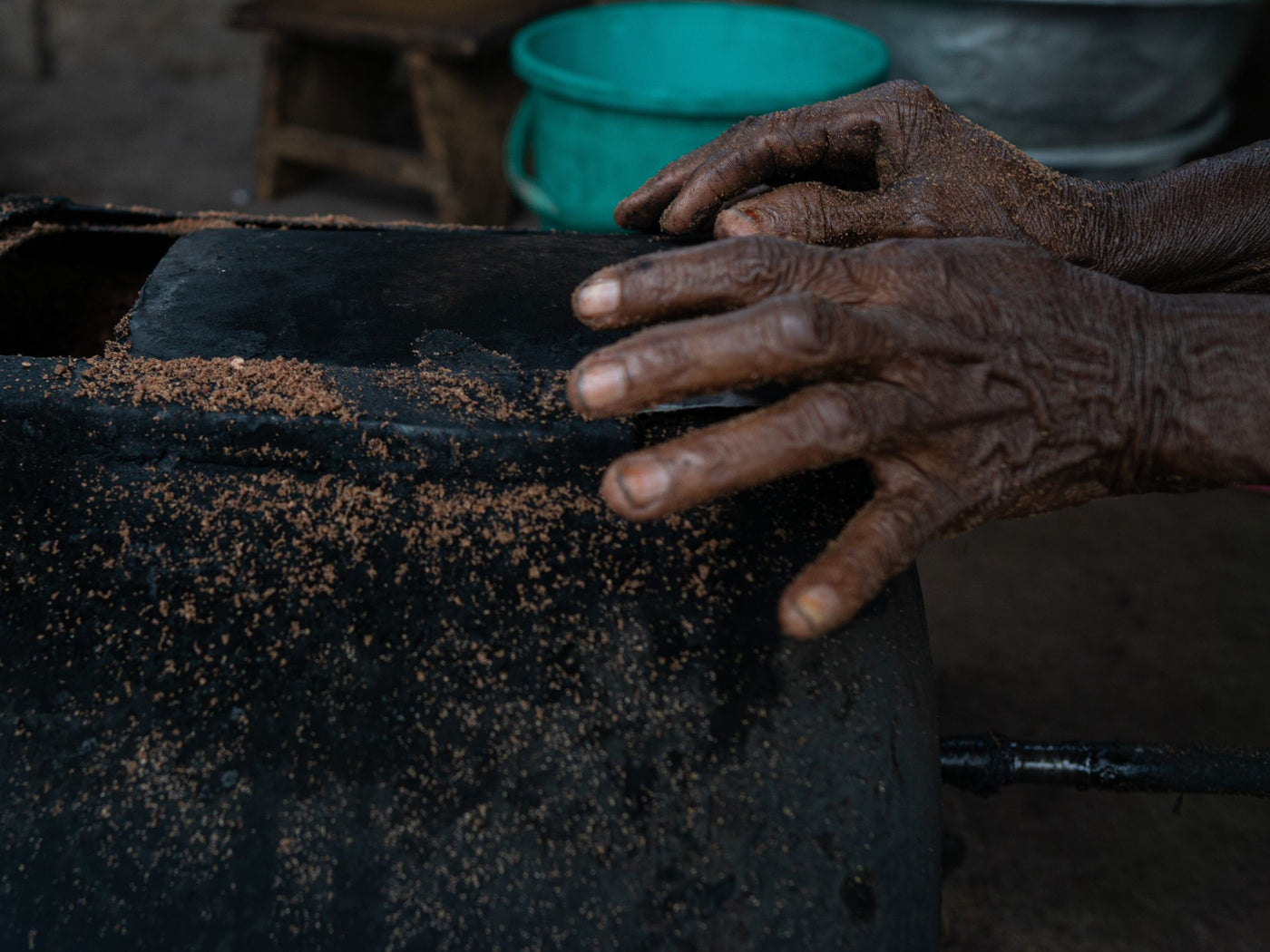
The difference
The quality of shea butter, similar to the production of a wine or olive oil, varies depending on the origin and processing method. Therefore, there are significant differences in quality from shea butter to shea butter. We focus especially on unrefined, pure shea butter and also ensure the high quality of our products with other factors:
- Traditional production
- Bio-certified
- Laboratory tested
- Direct local contacts
- Membership of the Global Shea Alliance (GSA) to promote the sustainability (social, ecological and economic) of the shea industry.

The difference
The quality of shea butter, similar to the production of a wine or olive oil, varies depending on the origin and processing method. Therefore, there are significant differences in quality from shea butter to shea butter. We focus especially on unrefined, pure shea butter and also ensure the high quality of our products with other factors:
- Traditional production
- Bio-certified
- Laboratory tested
- Direct local contacts
- Membership of the Global Shea Alliance (GSA) to promote the sustainability (social, ecological and economic) of the shea industry.
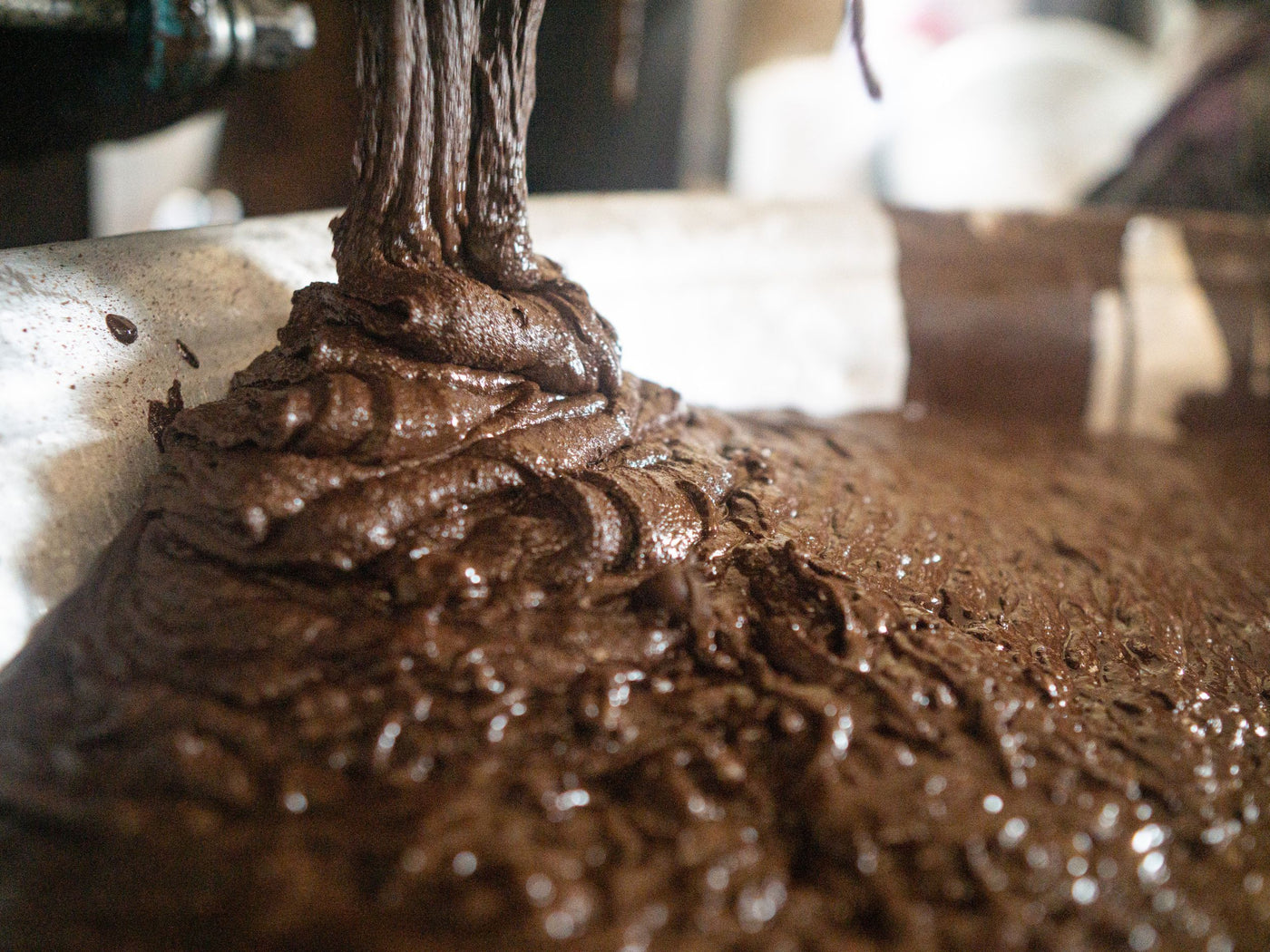
Sustainable cycle
SHEA YEAH tries to use the environment's resources sparingly wherever possible, and our partners also support this. Therefore, for example, the by-products of production are recycled into fuel & feed using a traditional system. The fuel, in turn, is then used instead of wood for production. This creates a natural utilisation cycle that benefits the environment.

Sustainable cycle
SHEA YEAH tries to use the environment's resources sparingly wherever possible, and our partners also support this. Therefore, for example, the by-products of production are recycled into fuel & feed using a traditional system. The fuel, in turn, is then used instead of wood for production. This creates a natural utilisation cycle that benefits the environment.
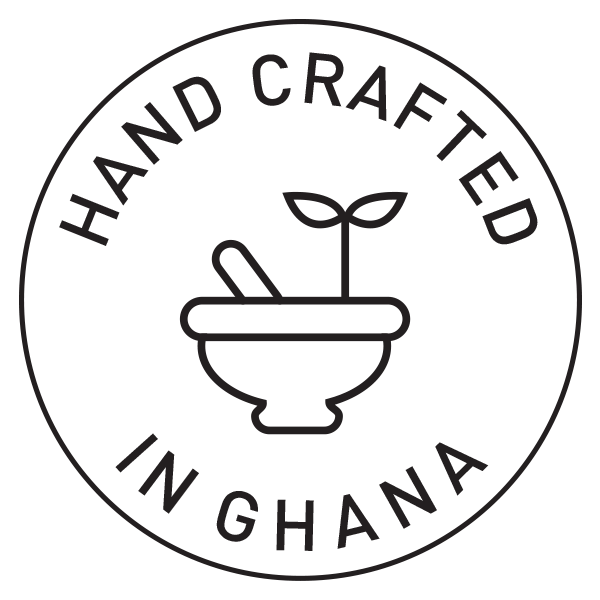
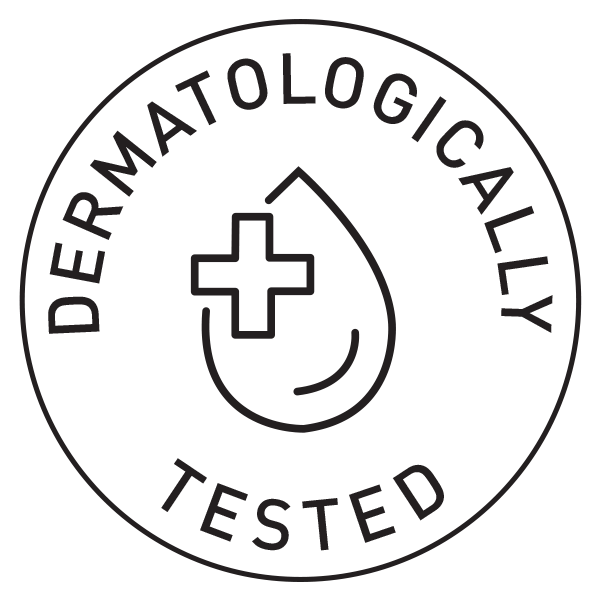
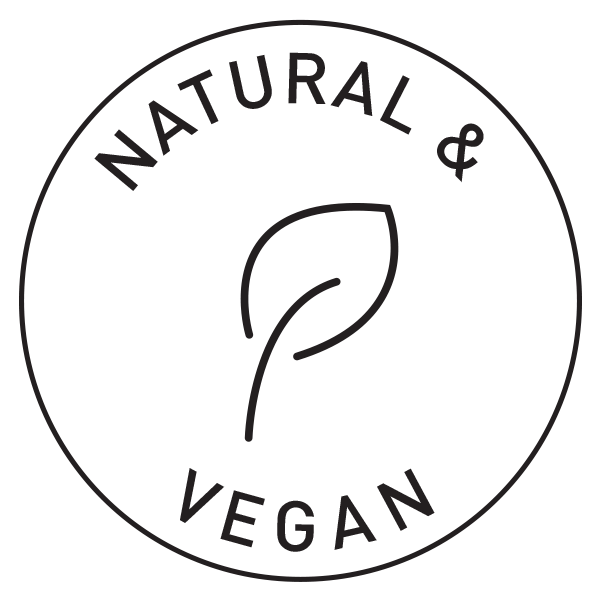

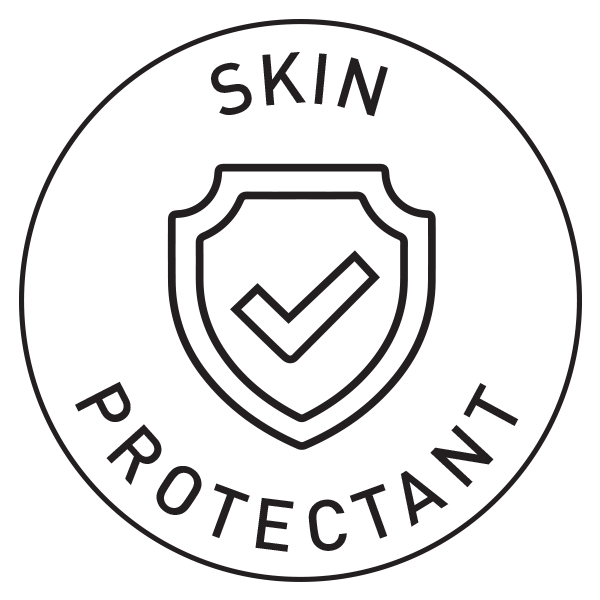
FAQ about Shea Butter
Unrefined shea butter is a valuable plant-based butter rich in vitamins A and C, as well as natural antioxidants. It provides the skin with rich nutrients, promotes moisture retention, repairs and nourishes, protects, and gives it a healthy glow.
Thanks to its diverse, beneficial properties, it's considered an all-rounder for all skin types and can be used from head to toe. Its good tolerability also makes it suitable for children and pregnant women.
Shea butter can be used either pure ( see pure shea butter ), in cosmetic mixtures ( see our range ) or as a raw material for making your own cosmetic products ( see our DIY blog ).
A lot! Learn more about the difference between refined and unrefined shea butter here .
Our shea butter is always unrefined . It's produced using traditional methods, meaning it's gently processed and packed with vitamins for your skin.
Unrefined shea butter has a characteristic smell due to its traditional production method. Interestingly, this smell varies slightly depending on the harvest year.
The aroma can generally be described as slightly smoky , nutty , and earthy . The slightly smoky flavor comes from the fact that the nuts are roasted for natural extraction.
There are also shea butters that have a very unpleasant smell, which can indicate poor quality (e.g., due to unclean water used during production, improper storage, etc.). Therefore, it's always advisable to buy certified shea butter!
Shea butter is naturally hard. The warmer it is, the softer it becomes.
We created body butters that are softer than pure shea butter and a bit more user-friendly. However, the raw form of shea butter is very popular because it contains only one ingredient.
Shea butter has a very long natural shelf life of around two years. When purchasing shea butter, pay attention to the information on the product details page (online shop) or label (in store).
Shea Butter Resources
-> Ecocert Greenlife certification SHEA YEAH
(updated 01/24)
-> MSDS Material Safety Data Sheet
--> contact us for the documents or receive them automatically when ordering pure Shea Butter 5kg+
-> Compilation of studies on shea butter
--> contact us for the link

